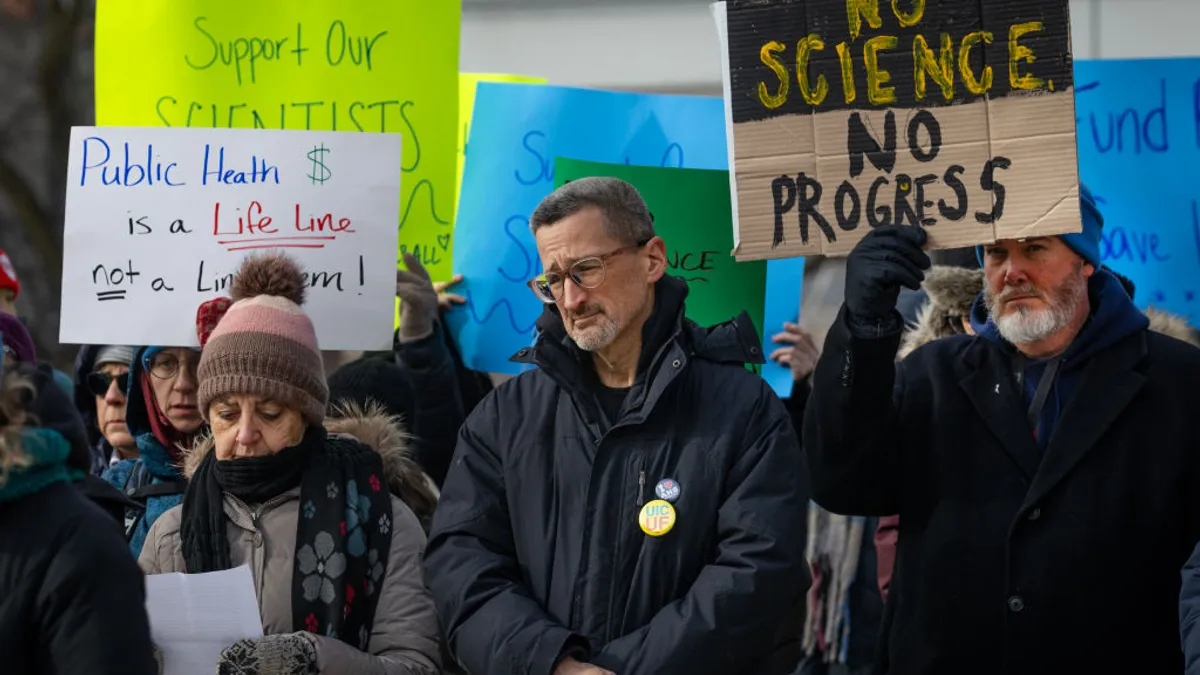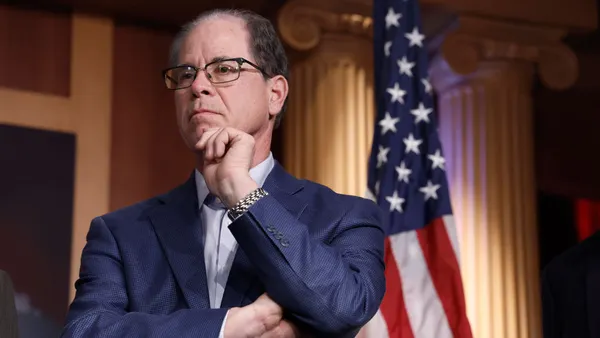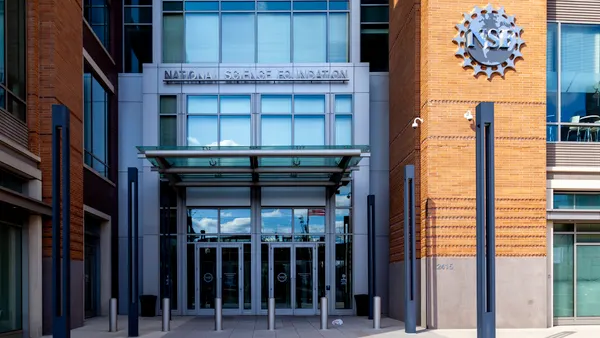Dive Brief:
- The new, bipartisan "Forever" GI Bill was signed into law this week, ending a 15-year time limit for veterans' use of education money. It also gives Purple Heart recipients full benefits, while before there was a requirement of 3 years of service, according to US News & World Report.
- Among other bonuses, the bill will restore benefits to veterans whose schools shut down in the middle of the semester, incentivize enrollment into STEM based programs by making candidates eligible for months worth of money in a lump sum, and make the entitlements transferable to dependents and spouses.
- The bill, supported by Student Veterans of America, comes after several for-profit schools like ITT Tech, which marketed heavily to veterans, ended up closing. The bill ensures that veterans, a growing sector of nontraditional students with families, will more easily restore and access their benefits over their lifetimes, reports The San Diego Tribune.
Dive Insight:
Adult learners make up an increasingly larger portion of university and college campuses, but not all institutions know how to effectively market to them or cater to their needs — as these types of students often have other serious responsibilities. Veterans, in particular, have unique circumstances that cannot just be solved with more faculty or distance education programs, a reality that contributes to data saying veterans don't graduate as much as their peers.
James Schmeling, executive vice president of Student Veterans of America, explained to Education Dive that veterans don't go to school the same way as traditional students, or even in many cases "nontraditional" students. Rather, they often begin their education where they are currently located or stationed, and they often have to return to college after many years of service. As a result, they tend to enroll in community colleges with low entry requirements, but their data point of not staying in school still gets counted when they have to transfer.
By extending benefits to a lifetime, the new GI Bill enures that veterans and their families will be able to pursue their education when it is most convenient to them, as well as restore any benefits that were lost to veterans who tried picking up their education again if their low-barrier-to-entry school had shut down. Beyond the bill, though, institutions can take more steps to making sure that these types of students are getting more attention. As almost two-thirds of veterans are first-generation college students, it's important that institutions provide them with more hands-on learning opportunities, offer advising on courses, encourage and incentivize internships, and better share information on disability services.











